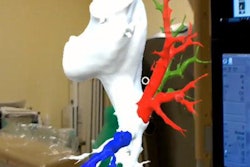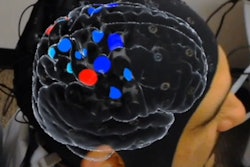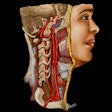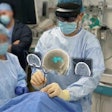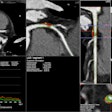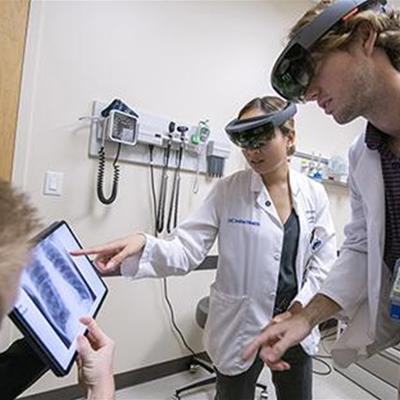
The University of California, Irvine (UCI) School of Medicine has received $1.2 million to research the physiological and psychological effects of using augmented reality (AR) technology for medical simulation training.
In collaboration with Chenega Healthcare Services and MedCognition, UCI researchers have been using MedCognition's PerSim AR medical simulator to train medical students and record their physiological and psychological responses to the training. PerSim allows users wearing a HoloLens AR headset (Microsoft) to view AR models while completing clinical tasks.
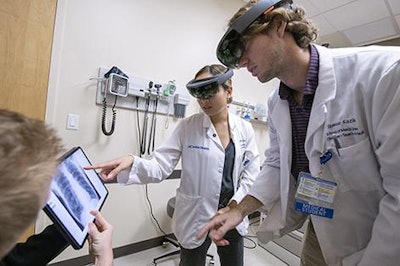 Simulation of an augmented reality exercise. Image courtesy of UCI School of Medicine.
Simulation of an augmented reality exercise. Image courtesy of UCI School of Medicine.Through their two-year study, the researchers aim to determine the relationship between AR-based medical training and the psychological traits or past stress experiences of the trainees, as well as the extent to which the AR simulation compares with standard medical simulations.
The funds are part of a contract between the study collaborators and the Medical Technology Enterprise Consortium.




